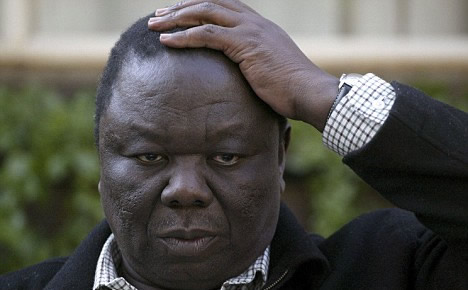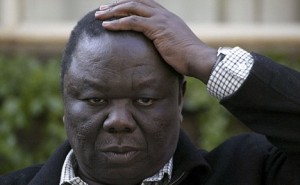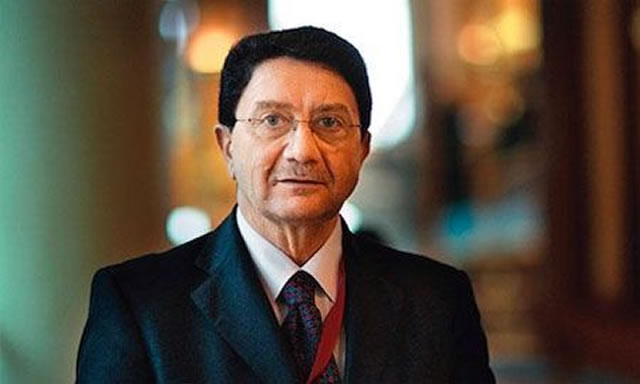Zanu-PF win leaves Tsvangirai battling for political survival

Cuthbert Mavheko
AFTER four years of bitter haggling in the shaky inclusive Government, Cde Mugabe and his party Zanu-PF were given an overwhelming mandate to preside over the country’s governance issues for the next five years in watershed elections that evoke memories of Zimbabwe’s first democratic elections in March 1980.
The MDC-T leader, Mr Morgan Tsvangirai, is still shaking his head in shock and disbelief in the wake of his party’s thorough drubbing by Zanu-PF in the just-ended harmonised elections. The outcome of these elections was evidently a bitter pill to swallow for Tsvangirai, who was so confident of victory that, at one stage he threatened to announce the election results himself if the Zimbabwe Electoral Commission (Zec) delayed to do so.
By voting overwhelmingly in favour of Cde Mugabe and Zanu-PF, Zimbabwe thwarted attempts by Western governments to impose a puppet regime, led by Mr Tsvangirai.
Mr Tsvangirai has unsurprisingly disputed the legitimacy and credibility of the elections, arguing that they were rigged. It is quite clear that Tsvangirai’s aim is to invite his followers to engage in violence so as to vindicate his assertions that the elections were manipulated. One of his reasons for disputing the election results is the voters’ roll, which he claims is in shambles.
This now raises two pertinent questions. Firstly why did Mr Tsvangirai participate in the elections if he was not satisfied with the voters’ roll? And secondly, what if he had won the elections, would he be making all this noise?
The harmonised elections were a do-or-die affair for Mr Tsvangirai, who has been at the helm of his party since September 1999. He has lost three elections and those in the know say that his days as president of MDC-T are numbered. In this connection, it can be seen that his future as MDC-T president and also as a politician were premised on him winning this crucial plebiscite.
But fate dictated otherwise. Cyclone Gushungo smashed the MDC-T ship to smithereens, leaving its embattled captain, Mr Tsvangirai, battling for his political survival.
The African Union, Comesa, the Sadc Electoral Commissions Forum Observer Mission, comprising poll commissions from 10 Sadc member states endorsed the elections, saying they were a true reflection of the will of the people of Zimbabwe and were in tandem with the region’s principles and guidelines on democratic elections.
This differs from deceitful overtures being peddled by Mr Tsvangirai and his masters in the West, that the elections were rigged. My humble submission is that Mr Tsvangirai and his party have no other option but to swallow their pride, acquiesce to the will of the people and desist from being rabble-rousers.
All issues being equal, it is pertinent to observe that in the March 2008 harmonised poll, there was no clear winner in the presidential poll and Zanu-PF lost its parliamentary majority to the MDC-T. In the presidential election, Mr Tsvangirai had 1 195 562 votes against Cde Mugabe’s 1 079 730 votes.
In the parliamentary poll, MDC-T won 100 seats, Zanu-PF won 99 seats, MDC 10 and one seat went to an independent. Be that as it may, Cde Mugabe went on to win the June presidential election run-off after Mr Tsvangirai developed cold feet and pulled out of the poll at the 11th hour, citing alleged political violence and intimidation against his supporters.
It should be highlighted here that when the 2008 elections were held, Zimbabwe’s economy was in a comatose, with inflation shattering world records due to crippling illegal sanctions imposed on the economy by the European Union and Western governments at the instigation of the MDC formations.
The outcome of that election did not, in any way, reflect a realistic expression of the will of the people of Zimbabwe because it was a protest vote.
However, the economy has since stabilised; the electorate is now enlightened and works on deliverables. In other words, it is what you have done for the people that will make people vote for you.
Zanu-PF won the 2013 harmonised elections emphatically because of its people-oriented programmes and policies. Since launching the land reform programme in 2000, Zanu-PF has resettled hundreds of thousands of people on land that was once occupied by white farmers.
Zanu-PF has also economically empowered many people in both rural and urban areas, through community share ownership schemes and various other people-centred programmes. All these strategies are aimed at making indigenous Zimbabweans masters of their resources.
Mr Tsvangirai and his party were disowned by the electorate primarily because they failed to deliver on their promises. For instance, Mr Tsvangirai promised to improve civil servants’ salaries but when he became Prime Minister he turned his back on them and, like his MDC-T colleagues in the inclusive government, used his position to amass wealth for himself and to womanise.
Notwithstanding the fact that they were in government for only four years, most outgoing MDC-T Cabinet ministers, including Mr Tsvangirai himself, now own flamboyant mountain-top mansions in exclusive suburbs and drive about the country in top-of-the-range cars.
The MDC-T lost to Zanu-PF in the harmonised elections also because it is devoid of economic policies and initiatives to propel the country into a sustainable economic growth trajectory. The MDC-T’s economic policies – Juice and ART – do not augur well with Zimbabwe’s current epoch and are therefore irrelevant as they premise the revival of the economy solely on the creation of jobs through foreign direct investment.
One does not have to be a genius to discern that such policies advance the interests of the foreigners while relegating the generality of Zimbabwean people to perpetual providers of cheap labour.
Zimbabwe needs home-grown economic policies that, in addition to creating jobs, also ensure that indigenous Zimbabweans become owners of their resources. With this in mind, let me state here that I am not aware of any country that has developed without its indigenous citizenry owning the means of production.
It is thus obligatory for indigenous people to own the means of production first and then invite foreign investors to supplement what is already on the ground.
To be brutally frank, MDC-T’s economic prescriptions are a recipe for disaster for future generations. Foreign investors may come to the country in droves, build factories and create jobs, but this will not eradicate poverty because the country’s wealth will be in the hands of foreigners. I am not an economic fundi myself; however my layman’s knowledge of economics tells me that sustainable development is not predicated on building many factories and having legions of Zimbabweans labouring in these foreign-owned factories for slave wages.
Conversely, sustainable development is realised by ensuring that indigenous people have total control of their resources
One should state in conclusion that the 2013 harmonised elections will have far-reaching implications on relations between Zimbabwe and Western powers.
Zanu-PF’s landslide poll victory has, no doubt, sent a strong message to the bullies in Washington, London, Paris and Brussels that Zimbabweans are masters of their own political destiny and will not be told how to run their internal affairs by outsiders.













Comments